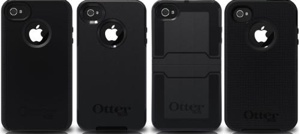New findings from Juniper Research (www.juniperresearch.com) shows that the mobile Augmented Reality (AR) market, is set to increase dramatically from 60 million unique users this year to nearly 200 million in 2018.
The market will expand from the early adopting gaming segment and navigation based utility to becoming an integral part of the consumer’s ecosystem, according to the research group. Despite initial trepidation and single use applications of the technology, Juniper forecasts AR to become a key future platform for communication and commerce.
AR has a potential to engage a new generation of consumers in a unique manner, combining the personal nature of mobile devices with the Internet’s wealth of accessible information. Juniper’s report finds that as the market matures, the app ecosystem is set to expand rapidly over the forecast period.
Initial innovations will stem from games, such as Google Ingress, but the technology will expand to include lifestyle and fitness apps. It also contends the possibility of a paradigm shifting utilisation of AR within social media, potentially breaking the digital-physical wall with potential future uses allowing a digital representation of a person to appear in the users surroundings.
Juniper Research forecasts that as the AR market matures the utilisation of AR apps will evolve to suit the device, with the tablet becoming a natural environment for multimedia and second screen apps and the smartphone becoming a platform for navigation AR apps to thrive on. It notes that the forthcoming smart glasses will once again evolve this dynamic, as users will increasingly benefit from multiple AR capable devices each with unique app ecosystems.
The report also notes that the mobile AR market will continue to be dominated by three key regions, North America, Western Europe and the Far East & China. These regions benefit by being some of the most developed and mature smartphone and tablet markets in the world – the key platform for AR developers. These regions will also be the first to adopt smart glasses, the next big development for AR.


